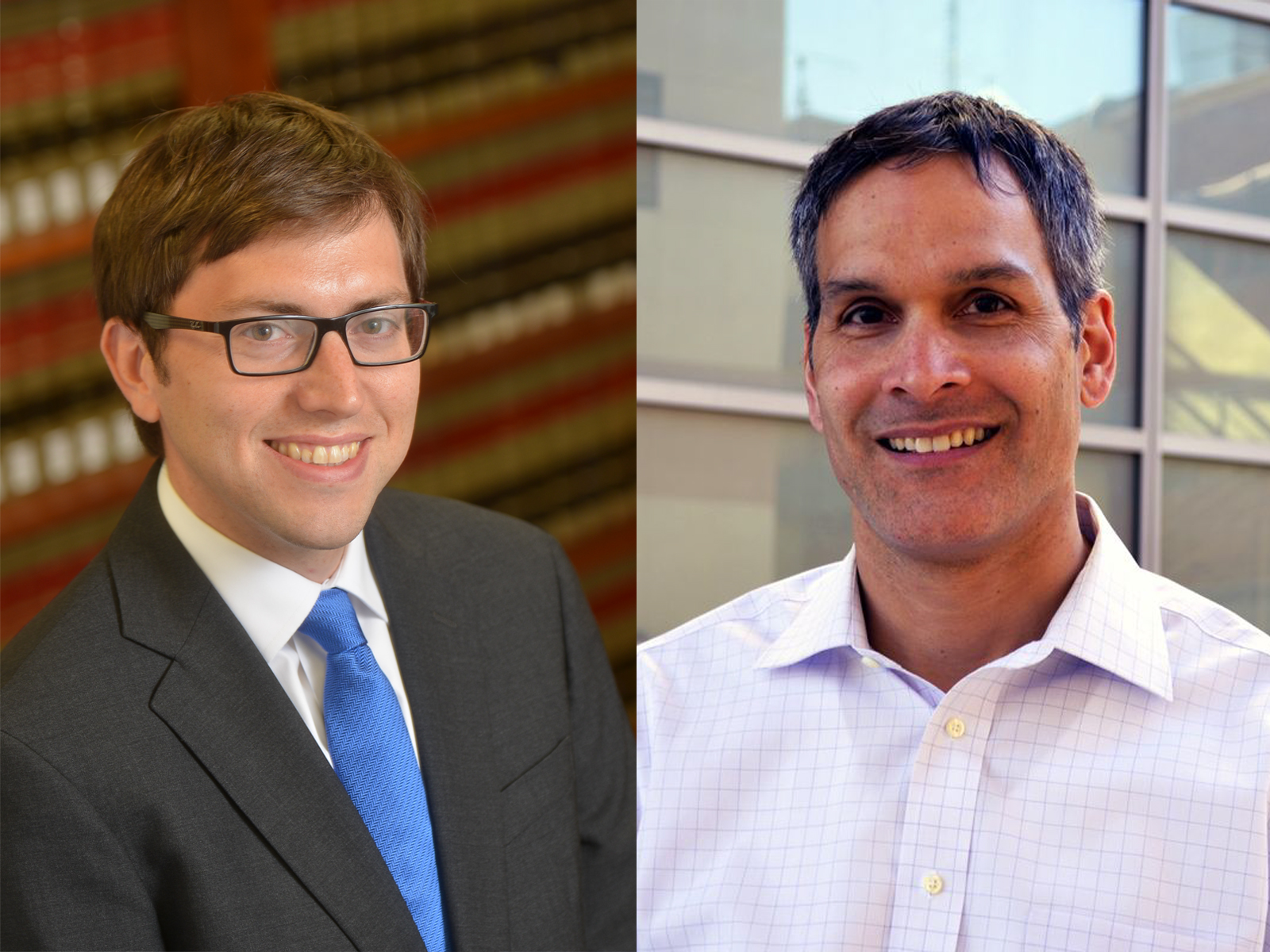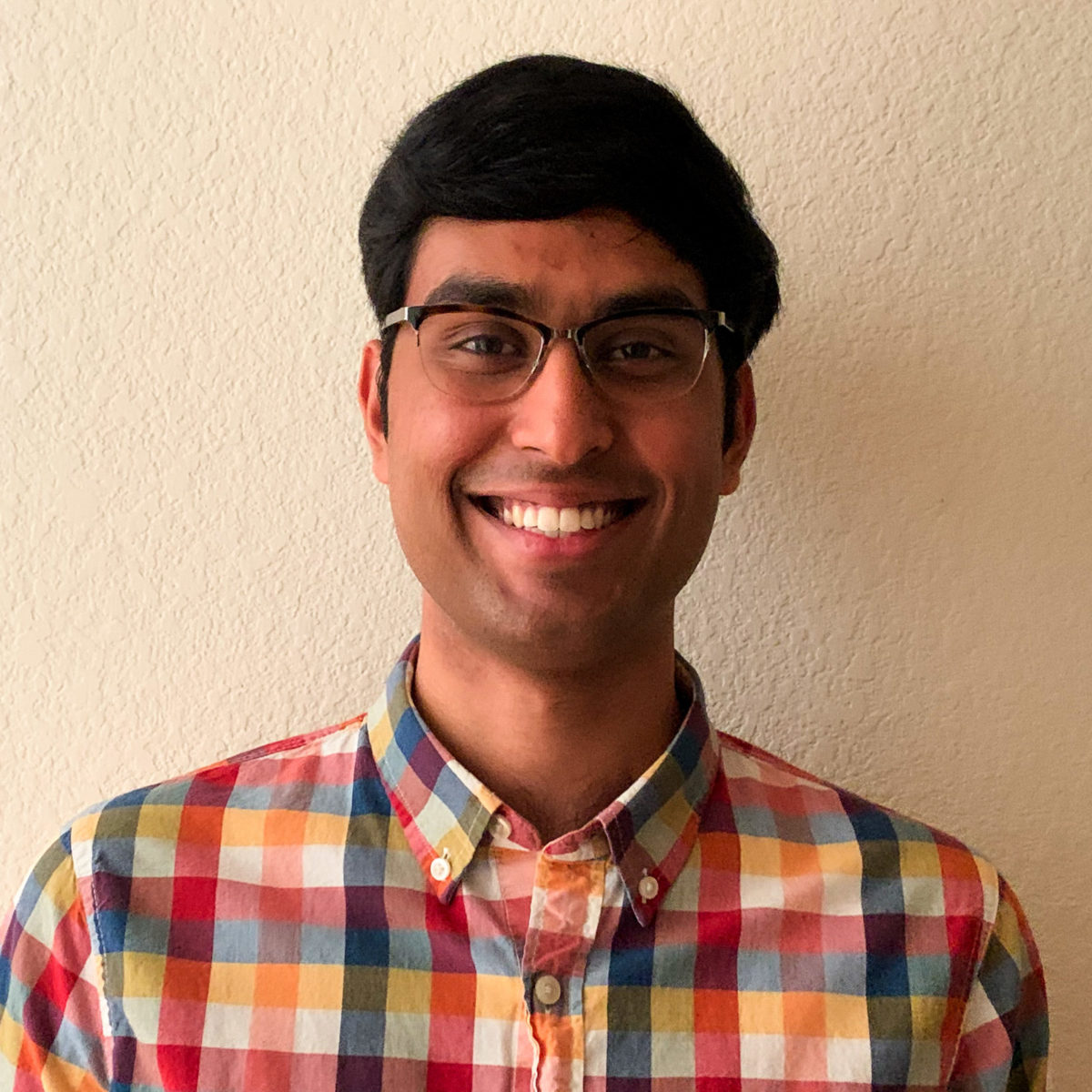New institute explores implications of modern technology on public policy

Richard Re (left), a law professor, and John Villasenor (right), an electrical engineering professor, will be the co-directors of the recently established UCLA Institute for Technology, Law and Policy. The institute will be an intercampus collaboration between the UCLA School of Law and the UCLA Henry Samueli School of Engineering. (Courtesy of UCLA School of Law and Matthew Chin/UCLA)

By Maanas Hemanth Oruganti
Jan. 23, 2020 12:40 a.m.
A new UCLA institute will investigate how new technologies impact society and public policy.
The UCLA School of Law and the UCLA Henry Samueli School of Engineering will work together in the new UCLA Institute for Technology, Law and Policy to determine how emerging technologies, such as artificial intelligence, require changes in law and propose solutions to issues stemming from their usage. The institute was founded in 2020 and began with a five-year $10.25 million grant from multiple organizations, including the Charles Koch Foundation.
Questions arising in areas such as artificial intelligence, digital privacy and cybersecurity aren’t only of interest to engineers, said John Villasenor, co-director of the institute and an electrical engineering professor, in an emailed statement.
To address these questions, researchers need engagement and collaboration from people from a broad range of disciplines including engineering, law, public policy and more, he said.
Growing technology is impacting aspects of society ranging from health care to stock trading, said Bill Kisliuk, executive director of communications for the School of Law. For example, computers can analyze patient scans to help doctors with diagnosis, Kisliuk said.
“It’s no longer a human looking at those results,” Kisliuk said. “So what implications might that have for our laws that govern medical care and medical privacy?”
One specific area of interest to the new institute is the use of computer algorithms in policing and criminal justice, which includes the challenges of algorithmic bias, Villasenor said.
“More generally, we will also be looking at artificial intelligence, which is going to impact nearly every sector of society,” Villasenor said. “Additional areas where I expect there will be work include digital privacy and cybersecurity.”
The institute plans to specifically examine whether judges’ use of algorithms at sentencing will result in fair sentences, said Richard Re, co-director of the institute and a law professor, in an emailed statement.
Another issue the institute aims to examine is how law enforcement uses applications to determine geographical patterns of criminal activity, Kisliuk said. If these applications direct police to invest resources into neighborhoods, which have populations composed of a large percentage of a specific ethnicity, then artificial intelligence could drive profiling, Kisliuk said.
“It all begins with the humans who create the algorithm, so the biases that go into the algorithm will come out in the results,” Kisliuk said.
He added that members of the institute will publish suggestions to the judicial system after independently investigating specific algorithms and their implications.
The institute also plans to host conferences, such as one scheduled for Friday titled “Algorithmic Criminal Justice?” which will invite UCLA students and visiting professors to participate in moderated discussions and Q&A sessions.
The institute also plans to hire both undergraduate and graduate students to work on research projects with staff members, Villasenor said in the statement.
“More broadly, we will be doing projects across a really interesting range of areas at the technology-law-policy intersection and will be actively seeking to engage with faculty and students from a diverse array of disciplines,” Villasenor said.
The institute will help bridge the gap between product designers and inventors in the Samueli School of Engineering and future policymakers and lawyers in the School of Law, Kisliuk said.
“If you come up with a really great idea over at the school of engineering for a product or a way of advancing commerce or health care, it’s really helpful to know what the legal obstacles are and what the legal opportunities are for your idea,” Kisliuk said. “At the same time, (law students) are going to get an opportunity to be sort of more entrepreneurial about it (by looking) at new products and saying this is how the law could or should apply to governing this new (idea).”
Villasenor said that while UCLA has extraordinary resources in terms of student and faculty expertise and research, there are untapped opportunities to build collaborations across fields.
“The institute will be a place where we can work to explore some of those implications, including both opportunities and risks,” Villasenor said.
Re added that he sees the institute as a future resource for policymakers at all levels of government.

